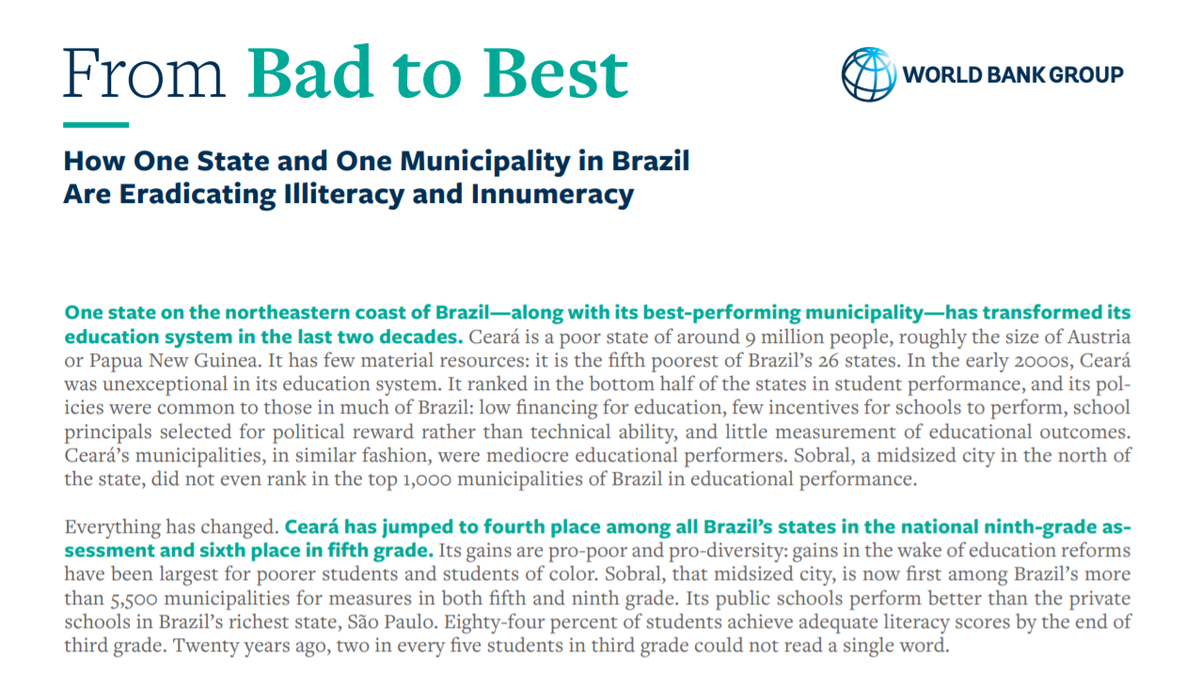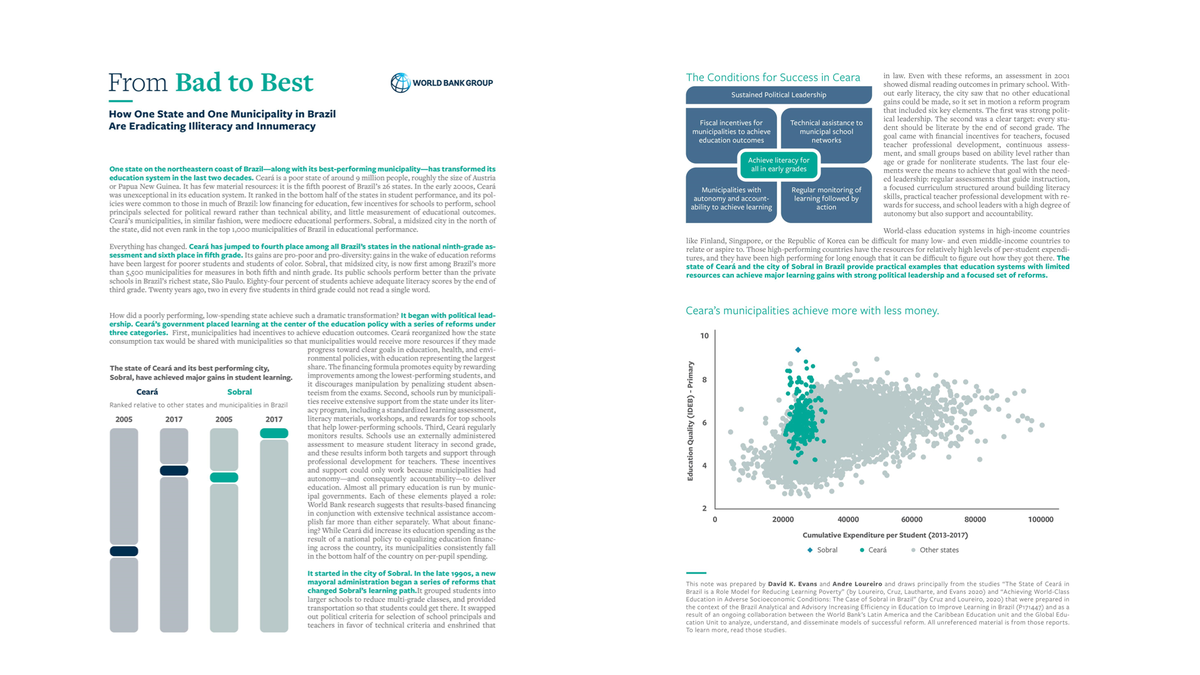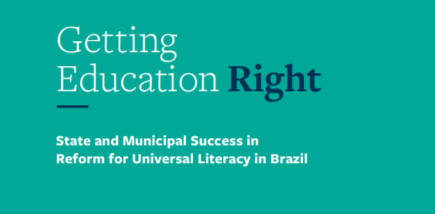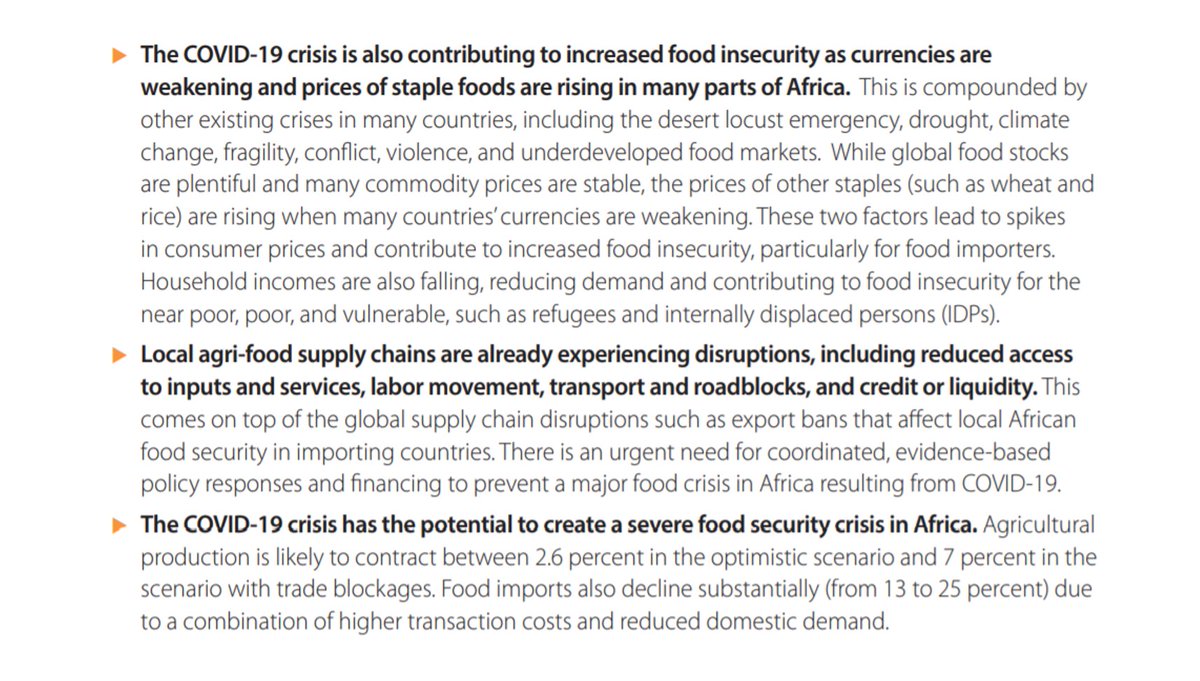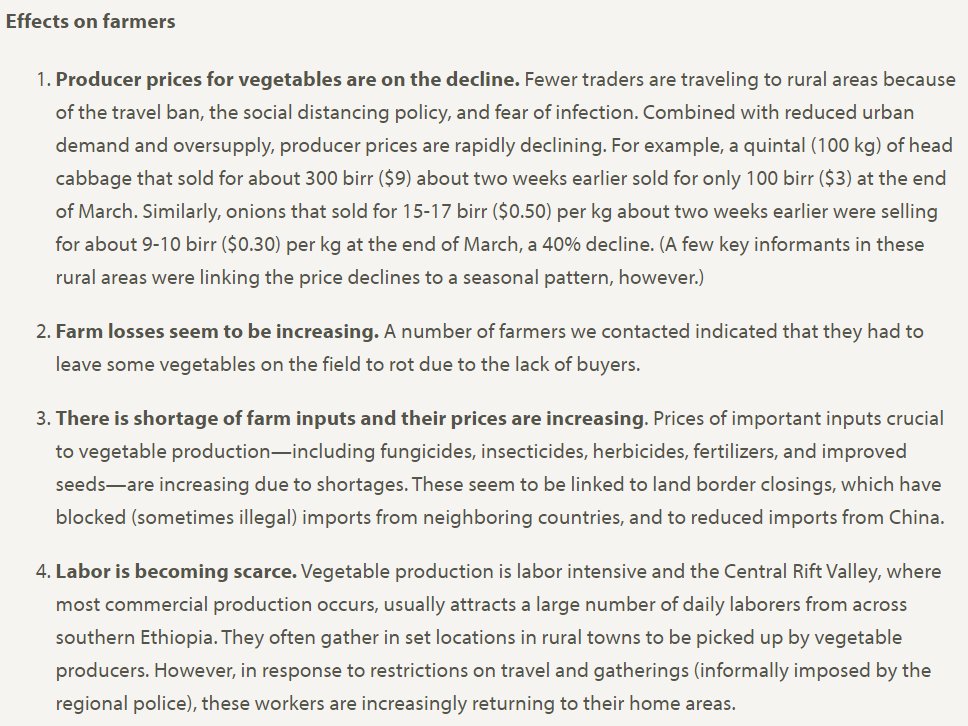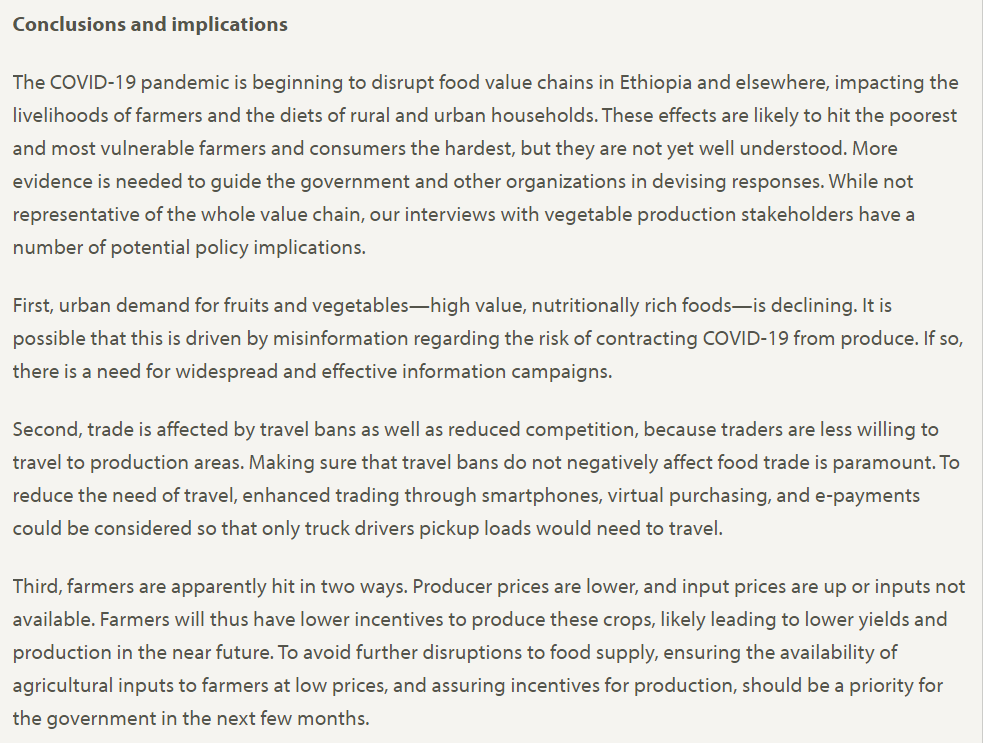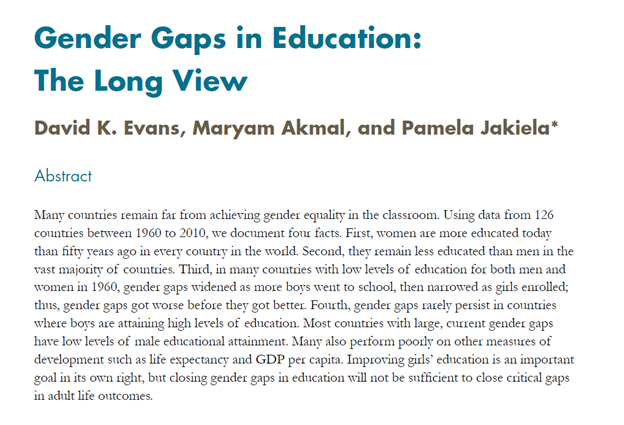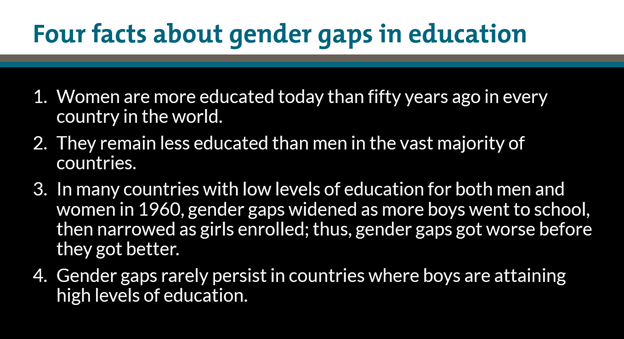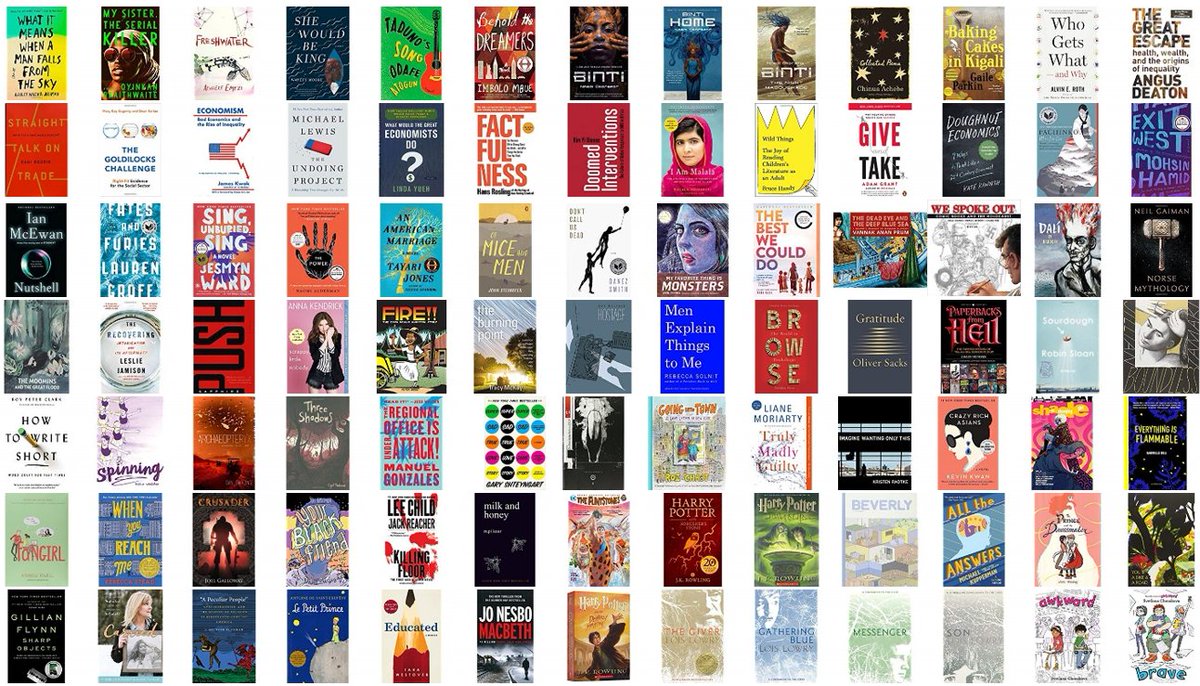
Recent research in Africa demonstrates the return to “structured pedagogy” interventions to boost learning. In our paper “Education in Africa: What Are We Learning?” (cgdev.org/publication/ed…), @AcostaAminaM & I identified several recent papers. [thread]
What are "structured pedagogy" interventions? In our review, we define them as "those that provide a variety of inputs to improve teaching, such as lesson plans and training for teachers together with new materials
for students."
for students."
Several studies come out of a pilot that was then scaled in Kenya, but there are others as well! (So if you're familiar with that work, don't stop scrolling.)
The Kenya PRIMR initiative included the provision of structured teacher guides for teachers and feedback to teachers. After one year, the program "improved oral reading fluency.”
sciencedirect.com/science/articl… @benlpiper et al. 2014
sciencedirect.com/science/articl… @benlpiper et al. 2014

The PRIMR program also improved oral reading fluency (effect size of 0.17 to 0.51 SDs) and reading comprehension (0.05 to .58 SDs) for poor students, with impact differentials across language, grade and school type. researchgate.net/publication/28… by @benlpiper et al. 2015 

It's not just literacy! The mathematics intervention arm of the PRIMR program raised children’s procedural and conceptual numeracy, with effects larger for older children and similar across gender.
tandfonline.com/doi/full/10.10… by @benlpiper et al. 2016
tandfonline.com/doi/full/10.10… by @benlpiper et al. 2016

Seeking to isolate the most important elements of the program, the combination of professional development, teacher instructional support & coaching, 1:1 student to book ratio, & structured teacher lesson plans proves most cost-effective. sciencedirect.com/science/articl… @benlpiper et al. 

The subsequent national scale up of the program (called Tusome) led to a 0.6–1.0 standard deviations increase on English and Kiswahili learning outcomes. link.springer.com/article/10.100… @benlpiper et al. 2018 

A Reading to Learn intervention increased literacy in Uganda by 0.2 standard deviations (in Lango) and in Kenya by 0.08 standard deviations (in Swahili).
researchgate.net/publication/26… by @ProfALucas et al. 2014
researchgate.net/publication/26… by @ProfALucas et al. 2014

A separate paper highlights lessons learned & challenges faced in the course of that evaluation: "Randomized impact evaluation of education interventions: experiences and lessons from a reading to learn intervention in East Africa" tandfonline.com/doi/abs/10.108… by @mngware et al. 2014 

Furthermore, several studies that we highlighted in our mother tongue instruction thread were embedded in structured pedagogy programs. Including mother tongue instruction within a structured pedagogy intervention seems like a winning strategy.
https://twitter.com/DaveEvansPhD/status/1308780835684921346
An earlier review, by Conn (2017), drew on earlier studies and also found evidence supporting structured pedagogy approaches for boosting learning in Africa.
Published: journals.sagepub.com/doi/abs/10.310…
Open access: academiccommons.columbia.edu/doi/10.7916/D8…
Published: journals.sagepub.com/doi/abs/10.310…
Open access: academiccommons.columbia.edu/doi/10.7916/D8…

Helping teachers to teach more effectively requires an array of inputs, not just some one-off training event.
(Even the trainings can be more effective, as @AnnaPopovas et al. show.) cgdev.org/publication/te…
(Even the trainings can be more effective, as @AnnaPopovas et al. show.) cgdev.org/publication/te…

You can read the overall messages from our review of education research in Africa in our summary blog post. cgdev.org/blog/what-have…
• • •
Missing some Tweet in this thread? You can try to
force a refresh

